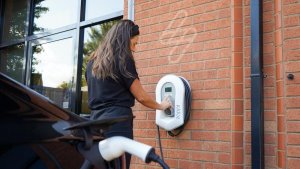
Siege Media’s Lyric Mott breaks down the myths about the value of electric cars for women campers today.
For women, camping is a great way to escape from the hustle and bustle of everyday life and take a break from the regular routine. It provides an opportunity to reconnect with the natural world, enjoy some fresh air and relax under the stars. However, the pursuit of fresh air in the wrong vehicle can actually cause pollution.
Fortunately, an electric car can help you leave a smaller carbon footprint. They provide the opportunity to explore and adventure in an efficient and environmentally friendly manner. With a range of models, sizes and prices available, electric cars offer an excellent way to see the world at your own pace while still taking advantage of all the benefits of camping. Electric cars are worth it for women campers who want to enjoy the great outdoors in an eco-friendly way.
After that claim, you might wonder, “how can I charge an electric car while camping?”. In short, you can now find charging stations at many popular camping locations, allowing for easy access to electricity for those driving electric cars. This is great news for women camping, as it allows you to drive farther than ever and explore more of nature’s wonders.
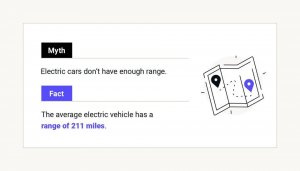
Additionally, charging electric cars at a campsite is much more economical than filling up a gasoline tank. Charging an electric car is also much more environmentally friendly, as there are no emissions from the vehicle. With the increasing availability of charging stations, women campers can enjoy the convenience and cost savings of charging electric cars while also doing their part to reduce their carbon footprint.
That said, myths and misconceptions about these vehicles have swirled around for years. Below, we debunk some of the most prominent ones and highlight why electric cars improve camping for women.
Myth: Electric cars are bad for the environment
You may have heard that electric cars are worse for the environment than regular cars since they use electricity, which creates power plant emissions. However, these vehicles actually emit less carbon dioxide than regular cars.
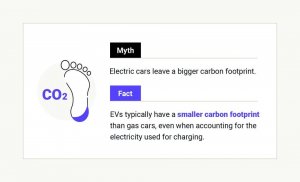
Although electricity that goes toward charging the batteries can significantly negatively affect the environment, electric vehicles tend to have lower carbon footprints than their alternatives.
Massachusetts Institute of Technology conducted a study revealing that even when considering the total number of emissions from manufacturing, charging and driving an electric car in the U.S. emits about 200 grams of carbon dioxide per mile when charged and driven.
In other words, electric cars have a major environmental advantage in reducing greenhouse gas emissions.
This makes them much more eco-friendly than gas cars, which rely on non-renewable fuels and produce harmful emissions. They also require less maintenance and are more efficient, meaning you can save money in the long run.
Electric cars can benefit a woman camping because they’re more silent and clean when compared to gasoline cars, providing a more serene, unpolluted environment while they camp. Additionally, electric cars are quieter, making them ideal for camping and road trips, as they won’t disturb the peace and tranquility of nature.

Electric cars are an excellent choice for women who want to reduce their environmental impact while enjoying the outdoors.
Myth: Electric cars are too expensive
Electric cars are becoming increasingly affordable and are a great option for women who enjoy camping. They are a great way to reduce your carbon footprint while still being able to enjoy the outdoors.
Exciting shifts are occurring in the electric car market, which could lead to more affordable options soon. When the electric car came onto the market in the late 2000s, people saw it as a luxury — especially due to the high price tag associated with them.
A portion of your investment in a new electric vehicle will be reimbursed as part of the Federal Clean Vehicle Tax Credit if you qualify. This means that you can save money on the overall purchase price of the electric vehicle and be environmentally conscious at the same time.
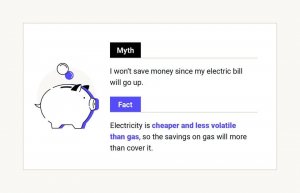
Determining what kind of incentives are available in your state before deciding on your next vehicle is important. States like California, Colorado, Maryland and Florida all offer incentives, tax rebates and other programs to assist with purchasing and maintaining an electric vehicle.
These cars are handy for women’s camping, as they are much more efficient and cost-effective than traditional gasoline-powered vehicles. In addition, they don’t require as much maintenance and are easier to maneuver in tight spaces.
Myth: Electric cars don’t use clean energy
Several types of renewable energy sources are commonly found in people’s homes right now. As a result, it is natural that you’d want to use your renewable energy sources to charge your eco-friendly car cleanly and sustainably.
Electric cars typically charge using one of three types of clean energy sources: solar, wind and hydropower. Solar panels are especially useful for camping trips since they can be easily set up and used to charge electric cars.
Wind turbines can also be used to generate electricity and charge electric cars, although they require more space and are often not feasible for camping trips. Hydroelectricity is another great option for charging electric cars, and it can be used at campsites that have access to a river or stream.

Now, while you can opt for renewable energy, remember that you’ll likely need relatively more solar energy to fully charge your car. Even still, it can help reduce your carbon footprint and provide a more cost-effective way to power your vehicle.
There is no doubt that electric vehicles require you to use energy from the grid to run. However, that should not make you think about a gas-powered car only. Even when only using grid energy is used to charge an electric car, its carbon footprint is still much smaller than that of a gasoline-fueled car.
Check out The Zebra’s infographic to uncover the truth about common electric car myths.
Have your say…
Have you experienced using electric cars while adventuring outdoors yet? Do share experiences you know in the comments below.

Lyric Mott
Lyric is a Louisiana native with years of experience writing and editing for high-traffic media publications. She prides herself on being a content expert first and a subject matter expert immediately next.
As a result of her years of writing experience, she produces high-quality, research-based content and can turn complex topics into engaging, digestible content.



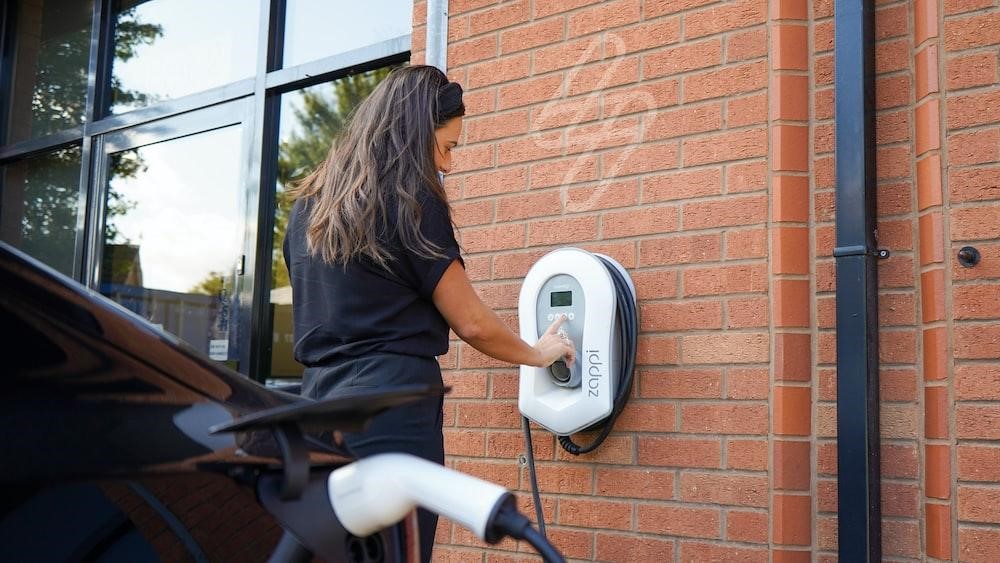


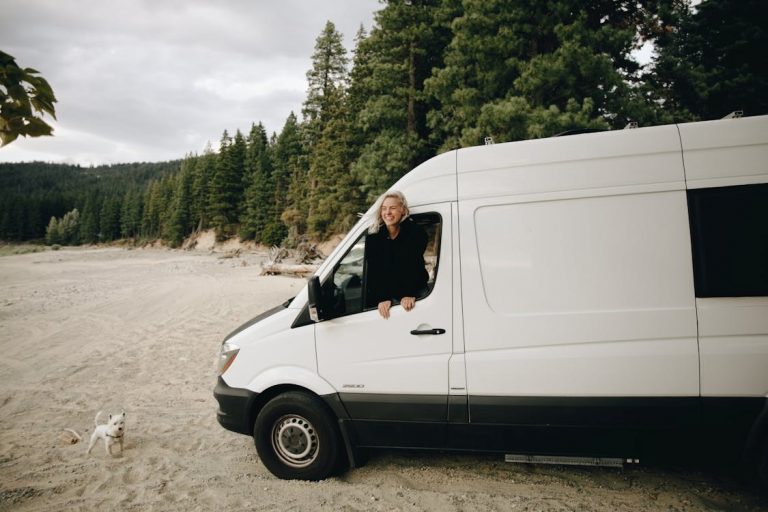

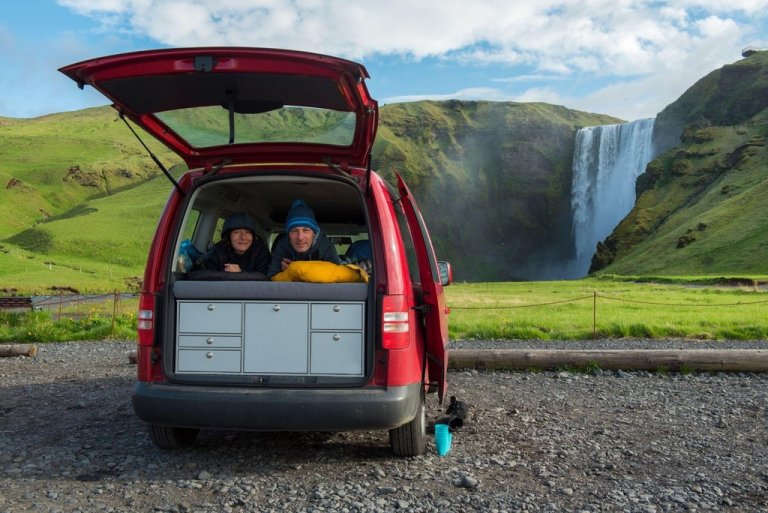



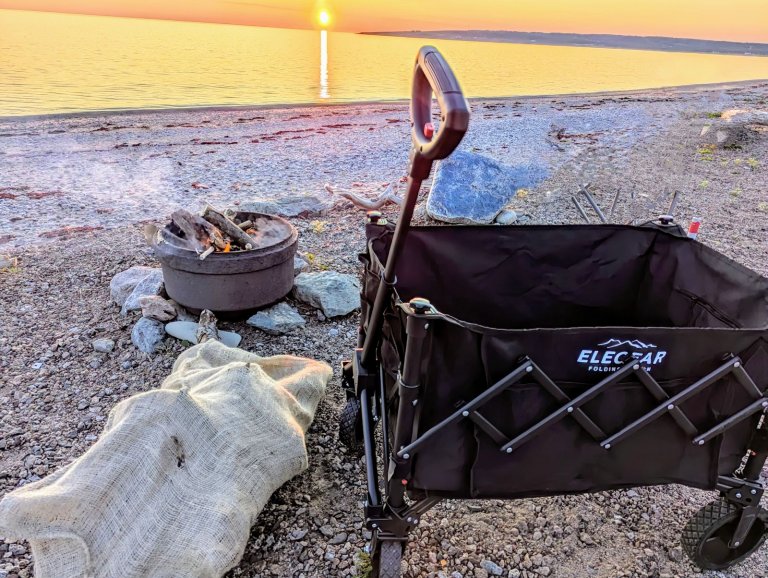


Leave a Reply